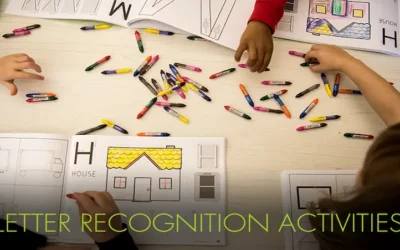In the rapidly evolving landscape of the contemporary world, education has experienced a profound evolution. The transition from conventional to modern education represents a paradigm shift in pedagogy, altering not only our instructional methods but also the fundamental philosophy of education. Within the confines of this blog, we embark on an exploration of the intricate dimensions of modern education.In this article, we will delve into its conceptualization, elucidate its importance, and dissect its overarching purpose. As we navigate this journey, we’ll unearth the profound influence it wields on students and society as a whole, shedding light on the transformative power of education in today’s dynamic and ever-changing environment.
Table of contents
- Defining Modern Education
- The Meaning of Modern Education
- The Purpose of Modern Education
- Benefits of Modern Education
- The Need for Modern Education
- Challenges in Modern Education
- Modern Education Technologies
- The Role of Teachers in Modern Education
- The Future of Modern Education
- Conclusion
- Frequently Asked Questions (FAQs)
Defining Modern Education

Modern education stands as a departure from the age-old, traditional methods of imparting knowledge. It boldly embraces contemporary pedagogical approaches, which, in essence, encapsulate its very identity. At its core, modern education intertwines seamlessly with technology, leveraging its potential to elevate the learning experience. This synergy catalyzes an environment that is not static but adapts fluidly to the ever-evolving needs of society. Through this metamorphosis, it equips students with the skills and acumen necessary to navigate the intricate landscape of the digital age, where challenges and opportunities are intertwined in a tapestry of constant transformation.
Modern education incorporates cutting-edge insights into child development, creating more effective and child-centered learning environments.
Evolution from Traditional to Modern Education
The evolution of education is a profound journey, distancing itself from its conventional origins characterized by classroom lectures, textbooks, and standardized assessments. In stark contrast, modern education emerges as a beacon of innovation, customization, and adaptability. It shatters the confines of the one-size-fits-all approach that once dominated, acknowledging the rich tapestry of individual learning needs and styles. Modern education champions the belief that each student is unique, and as such, it tailors its methods to cater to this diversity.
When selecting educational gifts for kids in the context of modern education, consider interactive STEM kits, coding toys, or educational apps that promote hands-on learning and critical thinking.
The Importance of Modern Education
Modern education is far more than a fleeting trend; it is an imperative in our contemporary, knowledge-driven society. Its significance becomes glaringly evident when we consider its role in preparing learners to flourish in a world that is in perpetual flux. In this era of rapid change and global interconnectedness, the traditional modes of education fall short in adequately equipping students. Modern education, however, serves as a catalyst, endowing learners with the vital skills, knowledge, and adaptability required to navigate this ever-evolving global landscape successfully.
The Meaning of Modern Education

Embracing Technological Advancements
Undoubtedly, one of the pivotal pillars of modern education is its seamless amalgamation with technology. Gone are the days when learning was confined to dusty textbooks and classroom lectures alone. In the present educational landscape, technology reigns supreme, ushering in an era of unprecedented accessibility and interactivity. Interactive online platforms and virtual classrooms have taken center stage, reshaping the very essence of learning.
Through these technological marvels, information is no longer bound by geographical or temporal limitations. Learners can embark on a virtual journey, exploring a world of knowledge at their fingertips.
Adaptation to Changing Societal Needs
Modern education’s dynamic nature stands as a testament to its adaptability in response to the shifting sands of society’s needs. It serves as a proactive agent in addressing pressing contemporary issues, including sustainability, diversity, and the ever-deepening web of global interconnectedness. By incorporating these vital topics into the curriculum, modern education equips students with the knowledge and perspectives required to understand and contribute meaningfully to our complex world.
The Purpose of Modern Education
Preparing Students for the Digital Age
In the digital age, technological literacy isn’t a mere option; it’s an absolute necessity. Modern education recognizes this fundamental truth and assumes the role of a beacon, guiding students through the labyrinth of technology. It equips them with the indispensable digital skills that serve as the key not only to unlocking educational opportunities but also to thriving in the competitive landscape of the modern workforce. This digital proficiency transcends the mere ability to operate devices; it encompasses critical thinking, problem-solving, and adaptability in the face of ever-evolving technologies.
Fostering Critical Thinking and Problem-Solving Skills
Modern education heralds a paradigm shift from rote memorization to the cultivation of critical thinking and problem-solving prowess. It champions an educational ethos that inspires students to be active, inquisitive thinkers who dissect, question, and tackle real-world challenges with creativity and independence. This approach empowers learners to not merely regurgitate information but to actively engage with knowledge, forging a path towards innovative solutions and a deeper understanding of the complexities of our world.
Benefits of Modern Education
Modern education breaks down geographical barriers, allowing students to access global resources and collaborate with peers worldwide, enriching their learning journey. Diverse learning tools such as digital resources, multimedia materials, and interactive simulations cater to different learning styles, acknowledging each student’s uniqueness. Personalized learning paths and adaptive technologies tailor the educational experience to individual strengths and weaknesses. Furthermore, interactive and immersive learning environments heighten student engagement, rendering the learning process both enjoyable and highly effective. This holistic approach to modern education empowers learners to thrive in an interconnected world.
The Need for Modern Education

In an era where knowledge is the currency of the economy, the capacity for critical thinking and adaptability holds immense value. Modern education plays a pivotal role in arming individuals with the essential skill set needed to thrive in such an environment. Moreover, it serves as a bridge across the educational divide, guaranteeing access to high-quality education irrespective of one’s socioeconomic status. Recognizing the uniqueness of every learner, modern education offers flexible teaching approaches and varied materials to accommodate diverse learning styles, reinforcing the notion that education should be inclusive and tailored to the needs of each student.
Challenges in Modern Education
Disparities in educational opportunities arise due to unequal access to technology and the internet, underscoring the digital divide. Sustaining the quality of online education remains an enduring challenge, requiring continuous efforts.
The rapid evolution of technology presents persistent hurdles for both educators and students, demanding constant adaptation. Modern education’s heavy reliance on screens prompts concerns about excessive screen time, and its potential consequences on physical and mental well-being warrant careful consideration. Addressing these issues is crucial to ensuring equitable, high-quality education in the digital age.
Modern Education Technologies
1. Role of Artificial Intelligence: Artificial Intelligence (AI) is revolutionizing education through tailored learning experiences, adapting to individual needs. Moreover, AI streamlines administrative duties, saving educators valuable time and resources. This technological advancement not only enhances the educational process but also improves efficiency within educational institutions.
Artificial intelligence education is revolutionizing the way students learn, providing personalized insights and tailored content to enhance their educational experience.
2. Virtual and Augmented Reality in Learning: Virtual Reality (VR) and Augmented Reality (AR) are reshaping the educational landscape by immersing learners in interactive, dynamic experiences. These technologies offer a profound enhancement to traditional teaching methods, fostering engagement and deeper understanding through immersive simulations and real-world applications
3. Big Data and Learning Analytics: Leveraging data-driven insights empowers educators to customize their teaching methods, catering to individual learning needs. These valuable analytics also illuminate areas where improvements are needed, enabling a targeted approach to enhancing the educational experience.
Modern education utilizes advanced tools and data analytics to tracking child’s progress more effectively, allowing educators and parents to provide targeted support and adapt learning strategies to individual needs.
The Role of Teachers in Modern Education
Educators are the linchpin in the successful integration of modern educational methods and technologies. They play a proactive role in fostering vibrant virtual classrooms and providing crucial assistance within digital learning environments. Continuous professional development is not merely an option but a vital necessity, ensuring that teachers remain current with the latest tools and pedagogical approaches. This ongoing training empowers them to navigate the ever-shifting educational landscape adeptly, equipping them with the skills and knowledge required to effectively guide students.
Educators are instrumental in bridging the gap between traditional and modern education, facilitating a seamless transition into innovative and dynamic learning paradigms. Their commitment to evolving with the times is pivotal in shaping the future of education.
The Future of Modern Education

The horizon of education holds the promise of deeper integration of AI, immersive technologies, and personalized learning experiences. These advancements are poised to reshape how knowledge is acquired, fostering more engaging and effective educational journeys. As we look ahead, the ability to anticipate and respond to the ever-evolving needs of both learners and society will be the compass guiding the future of education. This foresight is paramount in ensuring that education remains relevant, adaptable, and aligned with the dynamic demands of a rapidly changing world, ultimately preparing individuals for success in the years to come.
Conclusion
In summary, modern education represents a dynamic and ever-evolving entity that goes beyond the confines of conventional boundaries. Its essence lies in its adaptability, continually molding itself to meet the evolving needs of both learners and society at large. It stands as a beacon of empowerment, endowing students with indispensable skills, knowledge, and resilience to confront the challenges and seize the opportunities presented by the digital age.
As we cast our gaze into the future, the trajectory of education’s evolution remains unwavering, driven by an unwavering commitment to excellence. It is our collective duty to ensure that every individual, regardless of their background or circumstance, has unfettered access to a high-quality education. Embracing the principles of modern education is not merely a choice; it is an imperative in our pursuit of a brighter, more informed, and interconnected world, where every individual can contribute to the betterment of society and the advancement of humanity.
To get your hands on more such educational and free resources on coding, robotics, game development, etc., do check out the Brightchamps Blog Page now!
Frequently Asked Questions (FAQs)
A1. Modern education emphasizes active learning, personalized approaches, and the integration of technology, differing from traditional education which often relies on rote memorization and one-size-fits-all teaching methods.
A2. The primary benefits of modern education include fostering critical thinking skills, adaptability, and accessibility for both students and educators through online resources and collaborative tools.
A3. Modern education can address diverse learning needs by offering customizable learning paths, adaptive assessments, and inclusive teaching practices that accommodate various learning styles and abilities.
A4. Educational institutions face challenges when transitioning to modern education methods, such as resistance to change, the need for significant technology infrastructure, and ensuring equitable access for all students.
A5. Technology plays a central role in modern education, enabling remote learning, interactive content, and data-driven insights into student progress, fundamentally reshaping the way we acquire knowledge and skills.


 We are an army of educators and passionate learners from BrightChamps family, committed to providing free learning resources to kids, parents & students.
We are an army of educators and passionate learners from BrightChamps family, committed to providing free learning resources to kids, parents & students.
























